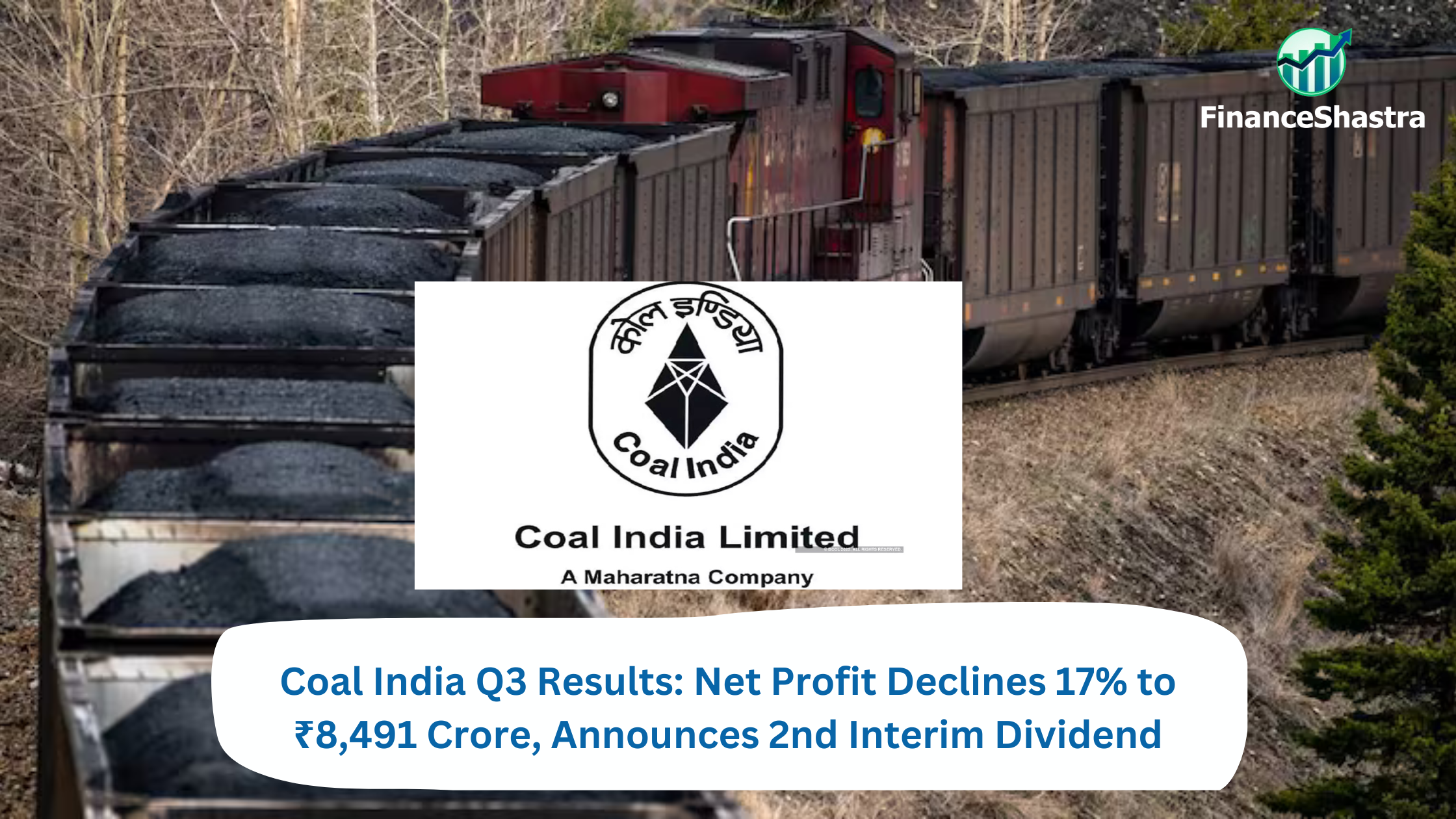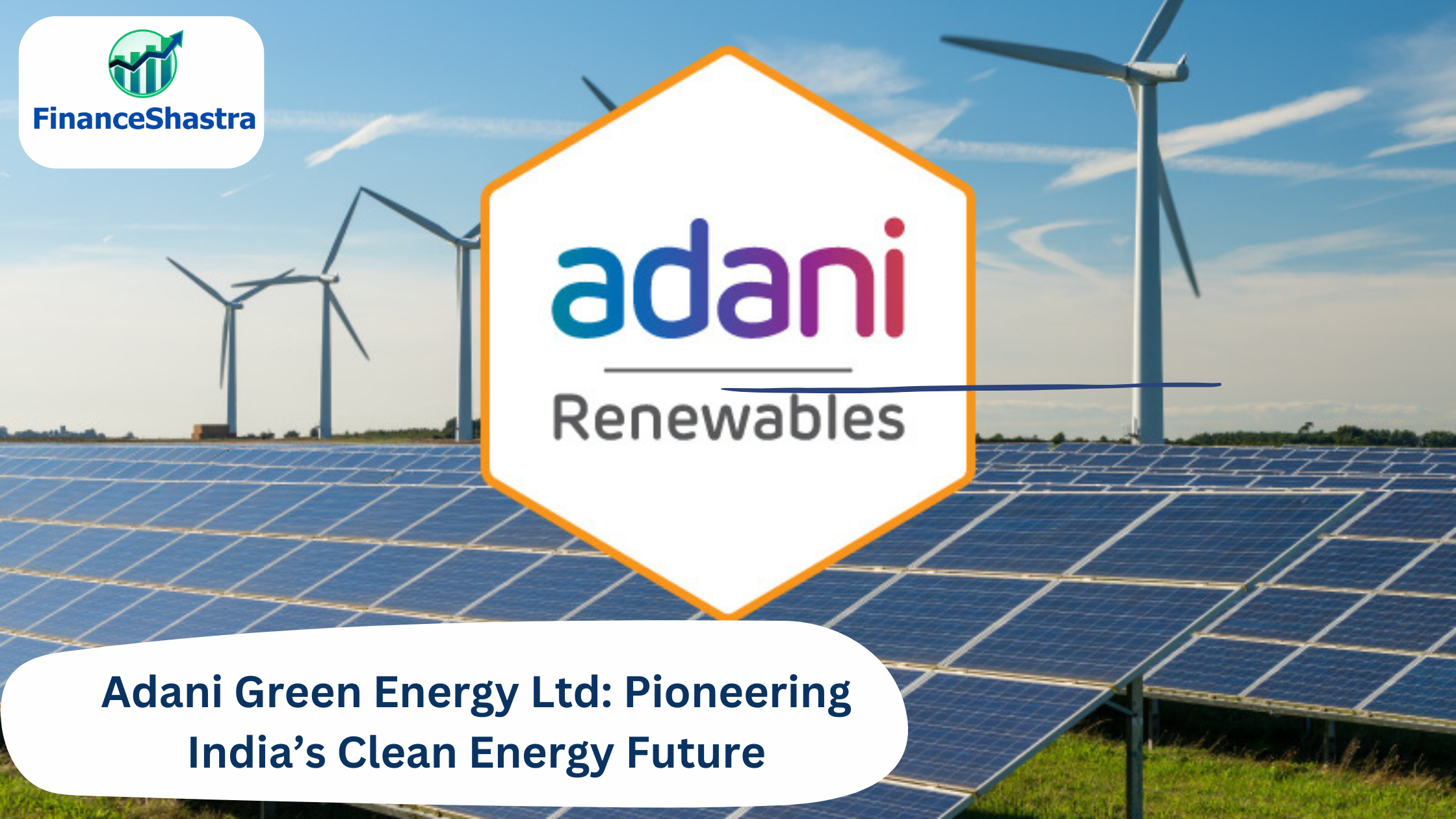Coal India Q3 Results: Net Profit Declines 17% to ₹8,491 Crore, Announces 2nd Interim Dividend
Coal India Ltd: Overview
Coal India Ltd (CIL), a Maharatna company, is the world’s largest coal producer and a major player in India’s energy ecosystem. Established in 1975 and headquartered in Kolkata, CIL operates under the Ministry of Coal, Government of India. It plays a pivotal role in meeting India’s energy demands, supplying over 80% of the country’s coal requirements. CIL’s operations span coal mining, production, and supply to diverse sectors such as power, steel, cement, and fertilizers.
India’s coal sector is critical for supporting its growing economy, as coal remains the primary source of energy generation, contributing nearly 60% to the country’s electricity production. However, the industry is also undergoing a transformation, driven by increasing environmental concerns, the shift towards renewable energy, and technological advancements to improve efficiency and reduce emissions. Despite these challenges, CIL remains central to India’s energy security strategy, catering to the ever-growing demand for coal with consistent production growth and operational improvements.
Latest Stock News
Coal India declares a 2nd interim dividend of ₹5.6 per share. In November 2024, Coal India Limited (CIL) took a major step toward sustainability by commissioning a 50 MW solar power plant, its largest to date, at Northern Coalfields Limited (NCL) in Nigahi. A few weeks later, on December 2, 2024, CIL signed an MoU with Bharat Petroleum Corporation Limited (BPCL) to explore a ground breaking Coal-to-Synthetic Natural Gas project at Western Coalfields Limited (WCL) using surface coal gasification technology. The Ministry of Coal further bolstered these efforts by approving a financial incentive of ₹1,350 crore for each of three coal gasification projects.
CIL also collaborated with IREL (India) Ltd through a MoU signed on January 6, 2025, to jointly develop critical mineral assets. Meanwhile, Mahanadi Coalfields Limited (MCL) recorded its first-ever income of ₹241 crore from the Basundhara rail line during the first nine months of FY 2024-25. Operationally, the company achieved a notable reduction of ₹365 crore in explosive expenses, although repair and maintenance costs rose by ₹89 crore. However, challenges persisted. Bharat Coking Coal Limited (BCCL) grappled with land issues and fires in overburden (OB) and coal benches. At the same time, excessive rainfall, nearly double that of the previous fiscal year, significantly impacted operations at NCL.
Business Segments
- Coal Mining and Production: CIL operates over 352 mines, categorized into underground, opencast, and mixed mines. The company’s production volumes stood at 703.2 million tonnes (MT) in FY23, a 12% year-on-year growth, with plans to achieve 1 billion tonnes of annual production by FY26. This aligns with India’s goal of reducing coal imports and boosting domestic supply.
- Coal Supply and Distribution: Coal India ensures reliable and efficient coal delivery through its robust distribution network, which includes rail, road, and dedicated freight corridors. The e-auctions play an important role here. Power utilities remain the largest consumers, accounting for approximately 80% of CIL’s total coal sales. The company also caters to non-power sectors like cement, steel, and chemicals.
- Coal Beneficiation: To address the growing demand for higher-grade coal and reduce the ash content, CIL operates 15 coal washeries (11 coking and 4 non-coking). These washeries play a vital role in improving the quality of coal supplied to industrial users, particularly in the steel sector. CIL is planning to expand its coal beneficiation capacity in the coming years to meet evolving market needs.
- Renewable Energy Initiatives: In line with India’s renewable energy goals, CIL is diversifying into solar and wind energy. The company has already set up solar projects at various locations and plans to invest ₹5,650 crore to develop 3 GW of renewable energy capacity by FY27. These initiatives align with CIL’s long-term sustainability strategy and the government’s focus on reducing carbon emissions.
Subsidiary Information
- Mahanadi Coalfields Limited (MCL): Mahanadi Coalfields Limited (MCL), established in 1992 and headquartered in Sambalpur, Odisha, is one of Coal India Ltd’s largest and most productive subsidiaries. Operating across Odisha, MCL plays a crucial role in India’s energy sector, contributing over 190 million tonnes (MT) of coal production in FY23. The company primarily caters to the power, steel, and cement industries, with a focus on large-scale opencast mining projects. MCL emphasizes sustainability and technological advancements to maintain operational excellence.
- Northern Coalfields Limited (NCL): Northern Coalfields Limited (NCL), established in 1986, is headquartered in Singrauli, Madhya Pradesh. NCL operates primarily in Madhya Pradesh and Uttar Pradesh, focusing on opencast mining to meet regional power demands. It produced over 122 MT of coal in FY23, making it a significant contributor to Coal India Ltd’s output. NCL is a key supplier to major clients like NTPC and has built a reputation for its highly mechanized operations. The company also prioritizes environmental management and community development, aligning with its commitment to sustainable mining practices.
- South Eastern Coalfields Limited (SECL): South Eastern Coalfields Limited (SECL), founded in 1985, is headquartered in Bilaspur, Chhattisgarh. It is Coal India Ltd’s largest subsidiary in terms of geographical area, operating across Chhattisgarh and Madhya Pradesh. SECL specializes in both opencast and underground mining and recorded a production of approximately 162 MT in FY23. It is a major coal supplier for the power, steel, and cement industries. SECL is actively involved in enhancing coal evacuation infrastructure and adopting eco-friendly mining techniques, further cementing its leadership in India’s coal sector.
- Western Coalfields Limited (WCL): Western Coalfields Limited (WCL), established in 1975 and headquartered in Nagpur, Maharashtra, operates across Maharashtra and Madhya Pradesh. WCL specializes in both opencast and underground mining, producing around 57 MT of coal in FY23. The subsidiary plays a vital role in meeting the energy demands of western India, supplying coal to thermal power plants and other industries. WCL is also dedicated to environmental conservation through initiatives like afforestation and reclaiming mined-out areas. Its focus on sustainable mining ensures long-term regional energy security.
- Central Coalfields Limited (CCL): Central Coalfields Limited (CCL), founded in 1975 and headquartered in Ranchi, Jharkhand, operates extensively in the coal-rich regions of Jharkhand. CCL produced approximately 74 MT of coal in FY23, serving power, steel, and cement sectors across the country. With a mix of opencast and underground mines, the subsidiary focuses on modernizing its operations through the adoption of advanced technologies. CCL is also developing coal washeries to supply cleaner coal, aligning with its commitment to environmental sustainability and meeting the rising demand for high-quality coal.
Q3 FY25 Earnings
- Revenue of ₹35780 crore in Q3 FY25 down by 1.03% YoY from ₹36154 crore in Q3 FY24.
- EBITDA of ₹12317 crore in this quarter at a margin of 34% compared to 36% in Q3 FY24.
- Profit of ₹8491 crore in this quarter compared to a ₹10292 crore profit in Q3 FY24.
Financial Summary
| Amount in ₹ Cr | Q3 FY24 | Q3 FY25 | FY23 | FY24 |
| Revenue | 36154 | 35780 | 138252 | 142324 |
| Expenses | 23183 | 23463 | 94020 | 94352 |
| EBITDA | 12971 | 12317 | 44232 | 47971 |
| OPM | 36% | 34% | 32% | 34% |
| Other Income | 2489 | 2214 | 6560 | 8396 |
| Net Profit | 10292 | 8491 | 31723 | 37396 |
| NPM | 28.6% | 23.7% | 22.9% | 26.3% |
| EPS | 16.6 | 13.8 | 51.5 | 60.7 |



